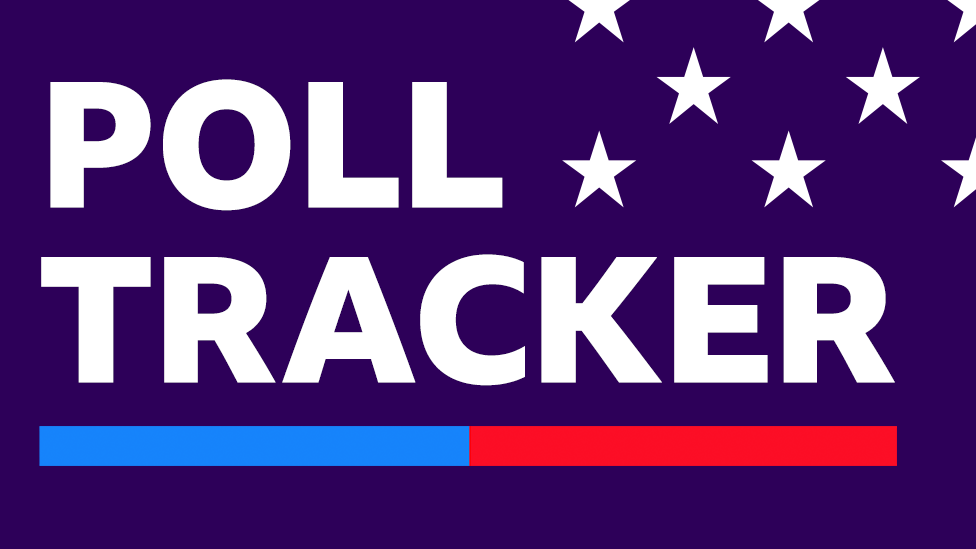Democrats usually win this state. Why Trump's visiting anyway
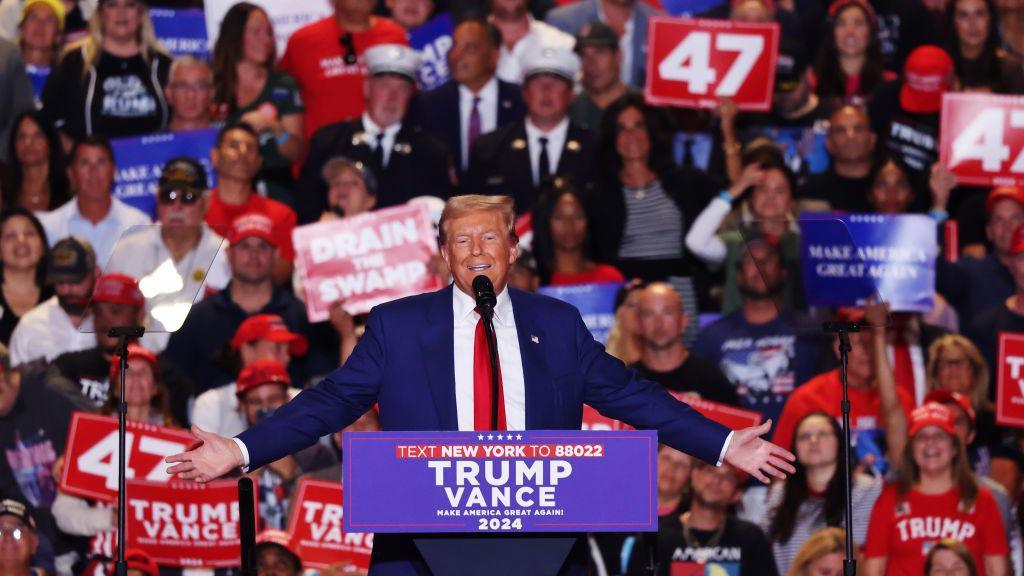
Donald Trump holds a rally on Long Island, New York on 18 September.
- Published
Fewer than 50 days before the US election, with House seats and the future of his presidential agenda hanging in the balance, Republican Donald Trump held a rally in a state he's likely to lose.
“When I told some people in Washington, yeah, I'm going up to New York, we're doing a campaign speech, they said, ‘What do you mean New York?’ Nobody can win. Republicans can't win,’” Trump regaled a crowd at the Nassau Veterans Memorial Coliseum on Long Island earlier this month.
The rally was only a short train ride from the liberal bastion of New York City, but the atmosphere was indistinguishable from his rallies in more conservative states. The arena’s parking lot was a Trumpian tailgate party; vendors sold merchandise with the slogan “I’m voting for the felon," and a Trump impersonator posed for photos.
“I said, I can win New York, and we can win New York,” Trump declared.
Maureen Liantonio, a 55-year-old from Long Island, showed up to support him. Rather than wearing the usual red-white-and-blue to the rally, she wore a bright shirt featuring Trump wearing Barbie-pink shades and blowing bubble gum.
“I’m doing it all Republican,” she said. "The whole down ballot, Republican.”
Squabbling over just a few seats
Trump might not take New York in the Electoral College, but that night in Uniondale before thousands, he was correct – Republicans can win.
In New York, Republicans and Democrats are at war over a handful of congressional districts on Long Island, and in the Hudson Valley and central region as they fight to control the House of Representatives - in addition to the White House. Part of Trump's mission in Democratic states like New York, which he is unlikely to win, is to fight for Republican candidates to win those districts.
A handful of moderate districts in partisan states could tip the balance of power in the House. Republicans, currently the House majority, are challenging Democratic representatives in blue-leaning regions in Washington state and Maine. Meanwhile Democrats are fighting to keep their centrist lawmakers in more conservative states like Alaska and Ohio.
Winning House seats in up-for grabs districts like Uniondale's is vital for Trump and his Democratic opponent, Kamala Harris: House control helps determine whether the next president's agenda faces supportive, same-party lawmakers - or an unyielding wall of partisan opposition.
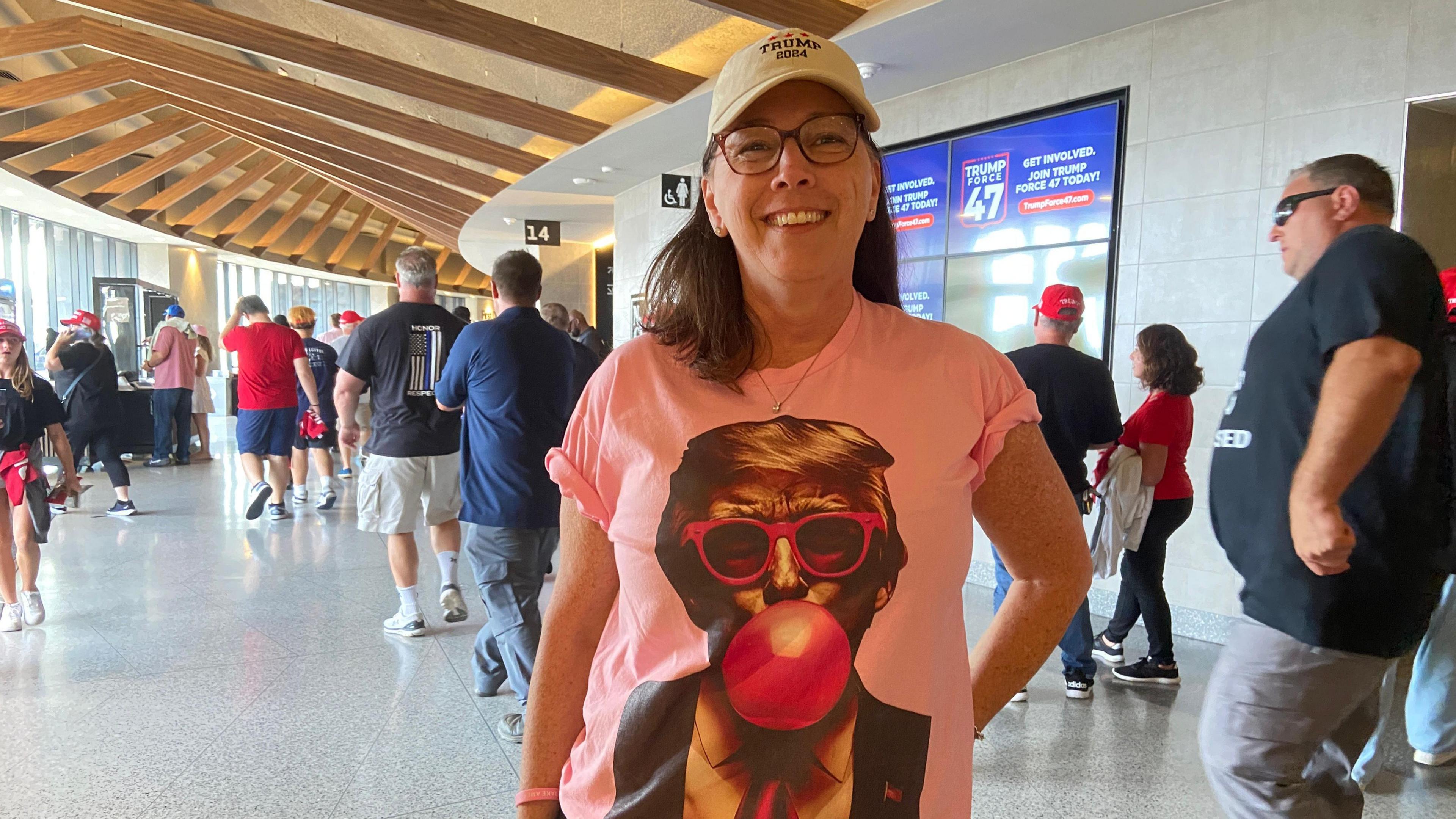
Maureen Liantonio came out to Trump's Long Island rally earlier this month to show her support. She planned to vote only for Republicans that year.
Why New York matters to Trump
While Trump might not win New York this November, the Republican Party has had surprising success in House contests there in recent years.
Republican Anthony D’Esposito, representative for the now-hotly contested 4th district where the rally was held, warmed up the crowd for Trump, receiving a hearty welcome. “Long Island is a battleground island!” he roared.
He flipped the district from Democratic control in 2022, even though President Joe Biden had dominated there two years prior. It's now a district Democrats want back.
Hammering warnings about crime, immigration and inflation helped the Republican Party capture key New York suburban districts - and control of the House - in 2022. Trump and down-ballot Republicans are hoping to replicate this success nationwide.
“We're not a border state, but immigration is huge,” said Randie Lucano, 64, a small business owner living in the 4th district. “Economy is huge. Housing, the next generation. What can they afford?”
Ms Lucano said she is an independent and considered voting for Robert F Kennedy Jr before he dropped out. Now, she said, she will vote Republican because she believes Trump will stem immigration and control the cost of living.
Nationally, likely voters who say the economy is a major issue in this election support Trump over Harris, 53% to 47%, a mid-September poll by CBS News/YouGov found.
The poll also indicated that voters who view immigrants negatively support Trump; 73% of registered voters who support Trump said immigrants made the country worse, compared to just 13% of Trump voters who believe the opposite.
Long Island voter, Celine Kaur, 48, feels strongly about migrants. “We have terrorists that could be coming over,” she said, echoing Mr Trump’s rhetoric. “It's terrible. It's absolutely terrible.”
Ms Kaur said her parents immigrated legally from Guyana in the 1980s, but that new migrants drain resources. “I can't even get any kind of help, but they're coming yesterday, and they're getting so much help,” she said.
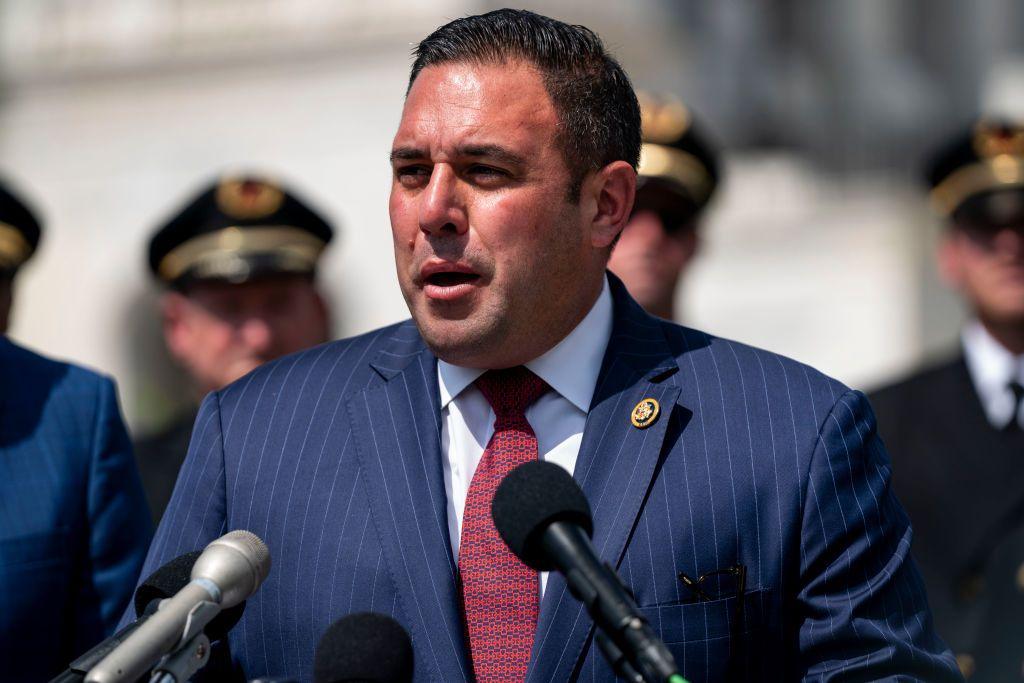
Republican Congressman Anthony D'Esposito, who is running for re-election on Long Island.
Will it work for Republicans?
While Trump provided plenty of red meat for his base at the rally, there’s a chance he could turn off those key moderate voters.
“The problem for the Republicans who are running in moderate, suburban swing districts is that these voters tend to shy away from extremism of any stripe, both in terms of tone and substance,” said Lawrence Levy, a suburban politics expert at Hofstra University.
“The danger for the Republican Party down ballot is that his tone, and his language on race, and on crime…it really hurts his ability to connect with all but his most faithful supporters.”
And this is not 2022, when Democrats didn't have a presidential race to boost turnout and faced an unfavourable round of redistricting.
Two years ago, “we had the wind at our faces. Now I think we’ve got the wind at our backs,” said Jay Jacobs, New York State Democratic Party chair.
Democrats have a new motivating factor in Ms Harris, whose historic campaign could encourage less frequent voters. She also is running on abortion rights, which has been an Achilles heel for Trump.
Christine Y., a 4th district resident, said she did not want to vote for Trump because of “his attitude", though much of her family likes him. “There’s no love-thy-neighbor,” said Christine, who didn't want her last name used for privacy reasons.
As a Korean American, she was uncomfortable with Trump’s rhetoric on immigration and crime. But it was abortion that animated her. “Personally, I'm pro-life, but I'm not going to tell other people what to do,” she said. “So I guess I’m pro-choice. It’s between them and God. It's their choice.”
Christine hasn't always voted, but said that this year she probably will pick Harris. And maybe her local Democrats, too.
- Published14 February 2024
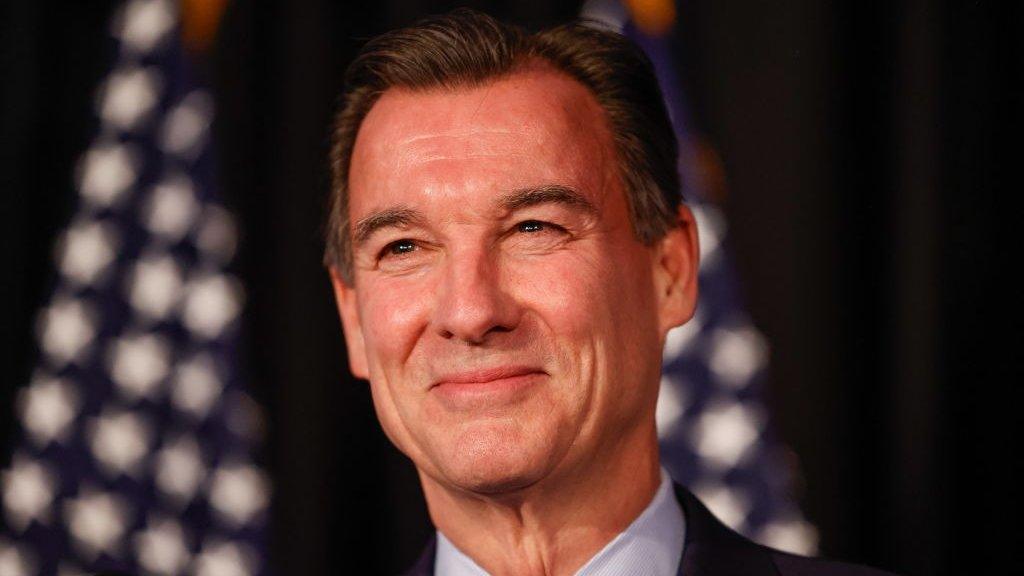
- Published19 September 2024
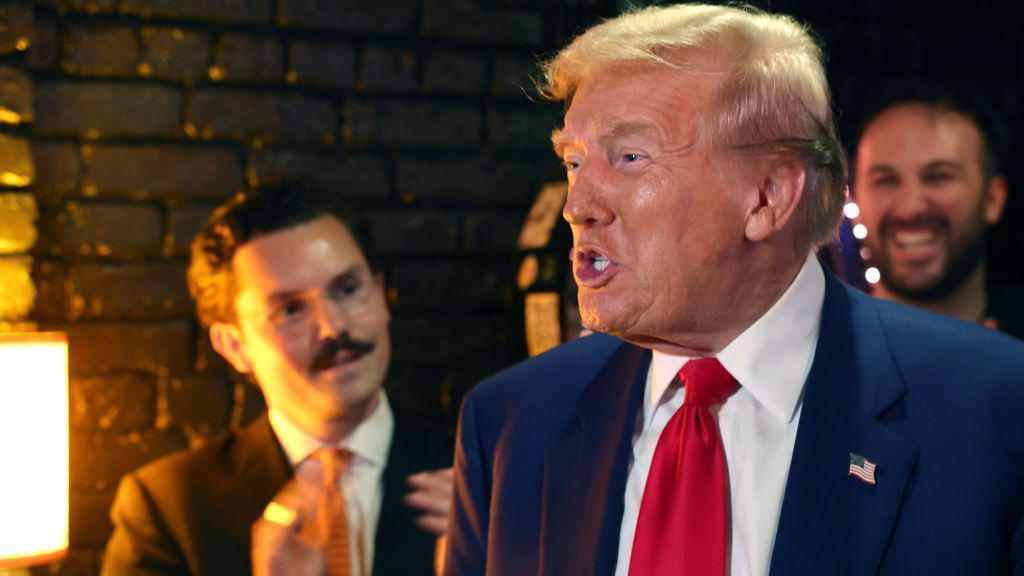
- Published5 November 2024
